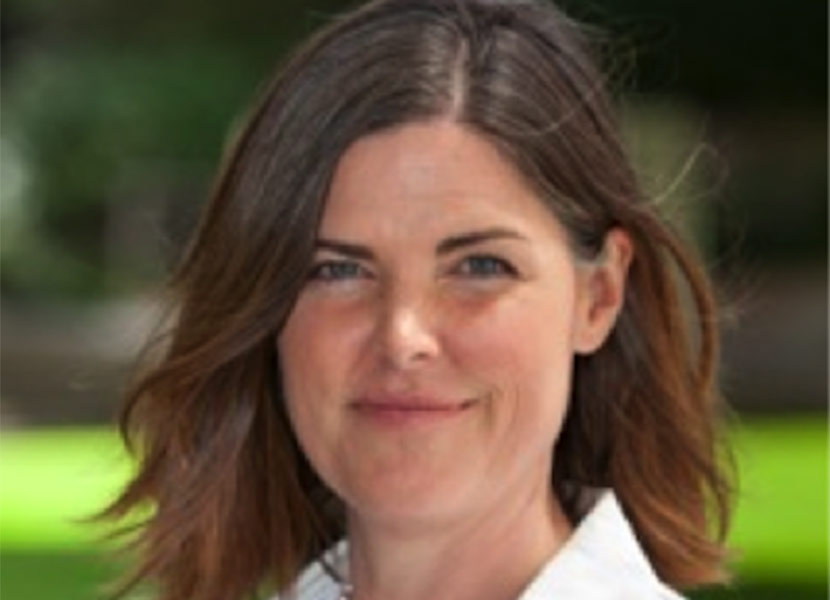
How do you teach communication in serious illness? Can you? Do you teach it the same way to doctors and nurses in training? What level trainee do you target – medical students, interns, residents? How do we know our teaching is working?
We discuss these and other bread and butter communication issues with Dr. Wendy Anderson, a palliative care physician at UCSF, director of the Bay Area Hub for Vitaltalk, and leader of IMPACT-ICU, a project to train ICU nurses in communication.
Enjoy!
-@AlexSmithMD
Eric: Welcome to the GeriBal Pod-
Alex: What are we doing? This is like our sixtieth podcast, you can’t pronounce it. What is it?
Eric: Welcome to, I think it’s the GeriPal Bodcast.
Alex: Did you say GeriBowel?
Eric: GeriBowels, the bowels of geriatrics podcast. The GeriPal Podcast.
Alex: The GeriPal Podcast! Oh, cool!
Eric: You’ve heard of that before, because you’re on it. This is Eric Widera.
Alex: This is Alex Smith.
Eric: Alex I see somebody else in the room.
Alex: We have somebody else in the room and our audience may be able to see it too because we are, for the first time, broadcasting on YouTube as well. This is Wendy Anderson, who is here at UCSF. She’s in the Division of Palliative Medicine. She’s an expert in communication; is going to talk to us about teaching communication, right?
Eric: Teaching communication.
Alex: Welcome to the GeriPal Podcast Wendy!
Wendy: So thrilled to be here.
Eric: Maybe you can teach me how to start one of these podcasts.
Wendy: No, you guys are naturals.
Eric: Is that what we’re going to be talking about?
Wendy: No, you guys are totally click and clack.
Eric: Wendy do you have a song for Alex to start us off with?
Wendy: I do. I don’t remember the name of it, but it is in a movie that my kids watch a lot.
Alex: Descendants 2?
Wendy: That’s it!
Alex: Why do your kids like this movie? What’s the deal?
Wendy: Well that’s a good question. And having little kids I spend a lot of time listening to music in the car with them because that’s what they like to do. And actually, this song, when I listen to the words and looked up an acoustic version, I feel like it’s actually a lot about communication training and palliative care; in that it’s so much about relationships and that so much of change starts with just one relationship between one person and another. So it actually felt like it’s a pretty good fit.
Alex: That’s great. [Singing]
Alex: Something like that.
Wendy: Amazing.
Eric: Now is this a movie I need to watch? I do have a young kid at home.
Wendy: Well, I have a feeling that it may be more for girls but, I don’t know.
Eric: We’ll see.
Wendy: We could see. I actually like it quite a lot.
Alex: It’s very positive, very uplifting, little bit Disney theme-ish in there. Maybe we should start with there and how do we bridge from Disney to communication skills training? I’m going to let Eric take that one.
Eric: Okay, communication, maybe you can just give us a little background, Wendy. How did you get interested in communication as something that we should teach?
Wendy: Yeah, sure. It was when I was in residency at Duke, and when I was at residency at Duke which was a long time ago now, evidence-based medicine was like the hot new thing.
Eric: I’ve heard of that before.
Wendy: Exactly!
Alex: It was hot and new at one point.
Wendy: It was hot and new and I was in residency. Also, it was so much was about cardiology and so there was every single trial that was like, what dose of beta blocker should you give and which between these different ACE inhibitors should you give, and that kind of thing. I also had come from a background training in hospice and that is kind of what brought me into palliative care, from San Diego hospice. Until then I landed in the ICUs at Duke and had some really challenging interactions with families who I thought were just making all the wrong decisions for their patients. And so James Tulsky was my mentor-
Alex: Oh, heard of him!
Eric: Heard of him.
Wendy: Yup, yup. So he just had these straightforward things like empathy that really seemed to turn everything around for me in those difficult communications. Then at the same time I was really struck that this thing that seemed like it was so important, that there wasn’t the same evidence base that there was and there wasn’t proven interventions the same way that we had them for cardiac disease.
Eric: Great! I guess, taking a step forward, do we have that proof now?
Wendy: I think we have more. We have a lot more.
Alex: You set off the phaser.
Eric: I did set off the phaser. So what are you doing now in that regard?
Wendy: There’s a couple of main projects that I’m working on. One is the Director of the VitalTalk Bay Area Hub. It’s one of the first hubs for the VitalTalk organization which is a nonprofit that teaches communication about serious illness and also trains faculty. Another project that I’ve worked on for a long time is called IMPACT-ICU, which is a program that trains bedside nurses in the intensive care unit to work really closely with physicians and other clinicians and families around discussions of prognosis and goals of care.
Alex: So, lets get into this a little bit more in terms of some specifics. We’re teaching communications skills and mostly should we focus in ICU settings or sort of general?
Wendy: Everywhere.
Alex: Everywhere, okay.
Wendy: We need to focus everywhere that clinicians are seeing seriously ill patients.
Alex: Everywhere. When we’re talking about clinicians, we’re talking about who?
Wendy: That’s another big question, right? That really, most of the data is interventions focused on physicians, and interestingly, Betty Ferrell was talking about a review they did before putting together a communication intervention for nurses, a communication curriculum. What she found was that the vast majority of evidence or guidance was initially around breaking bad news and then physicians. I think that that’s a big piece that we need to be expanding, which we already have a lot of great guidance about communication across all different domains of palliative care. And I think we’re also learning about how can we apply these proven methods for teaching communication skills to other disciplines.
Eric: So you mentioned VitalTalk, do you want to just give our audience a brief descriptor of what VitalTalk is?
Wendy: Yeah, sure. It’s a nonprofit. It was founded, initially by the investigators that created Oncotalk, which was teaching communication skills to oncology fellows. They started to envision it like a social change model. Realize that originally Oncotalk was funded by national grants, federal grants and they just realized that we’re not going to make the kind of change that they talk about in Descendants 2 unless we really think about it-
Alex: There we go, there’s the link. Well done, well played.
Wendy: Unless we really think about this as a social change movement so they founded nonprofit and a lot of the work that we’re focused on in VitalTalk now is all about dissemination.
Eric: There’s like multiple, there’s VitalTalk, there’s RenalTalk, there’s GeriTalk-
Alex: OncoTalk.
Eric: We’re going to start Podcast-i-talk, to help with me.
Alex: We need to get that pronunciation right.
Eric: When we’re talking about evidence-based, I’m going to take it a step back because earlier I was talking with Alex, we were going back to a JAMA article that was published in 2013. I think looking at VitalTalk, Oncotalk and I asked Alex, “Hey do you remember if we did a GeriPal post on this?” he’s all “No.” Turns out Alex did a GeriPal post on the article they wrote about-
Alex: I wrote a whole post about it and forgot about it completely.
Eric: JAMA in 2013, a study looking at VitalTalk and whether or not it improved quality of life, communication, other secondary outcomes. I think-
Alex: Depression among patients.
Eric: It was a largely negative study-
Alex: Largely negative in terms of patient related quality of communication.
Eric: See it’s all coming back Alex.
Alex: It’s coming back now.
Eric: I can see the gears turning.
Alex: But, depressive symptoms increased among patients randomized to the intervention arm, interns and I think nurse practitioner students, who were trained in this. I forget, it was like a 4-day, intensive communication seminar.
Wendy: It was residents and advance practice nurses right?
Alex: Yes, right.
Wendy: Really important question, and I think that what’s so challenging about this area of thinking about communication skills training is the outcome assessment and the evaluation of it. I think the thing that’s really important to remember about that study is that the clinicians learned. They did acquire new communication behaviors such as responding to emotional opportunities with empathy and there’s a lot of evidence showing that those types of communication behaviors are associated with better patient outcomes.
I think the challenge is that we often think about communication skills training in a vacuum so we send people off to do a 1-day course and then we send them back to their institution and they have no support and their institution is still the same and they’re the only one at that institution that was trained. So, I think that there’s this big leap going from training one individual clinician in communication skills to really a multi-component intervention that’s going to need to include training other people, systems change.
So I think the Serious Illness Care Program is a really wonderful example of that where they include prompts of “Who should you talk to about this”. They have a checklist or conversation guide about topics to discuss. Then they have ways to document in the EMR and there’s audit and feedback, and so you need all of that.
Alex: Serious Illness Communication Guide, just to review briefly, this is … what is this thing? This is out of Boston. This is like Atul Gawunde’s Ariadne Labs and it’s lead primarily by Susan Block and Michelle Bernacke and others. It’s not a checklist; they like to say it’s a guide. It’s like a toolkit for clinicians to use in serious illness communication, as it says, right?
Wendy: Exactly. That’s the type of intervention that’s really multi-component. It partners with people like primary care physicians who are trying to engage in these skills and it provides them with the support, not only to have the discussion, but also to be reminded about how to document, when to have it and get audit and feedback to make sure that they’re doing it. I think that that’s the type of thing that we need to be looking at going forward.
Alex: My sense is that we need more data about the serious illness communication guide too. We need stronger evidence base there as well.
Eric: So what I’m hearing is that communication training is important. Also, we shouldn’t just rely on individual modules but actually getting system change too. Taking a step back, from your heart of hearts, do you feel like you can teach communication or like, you either got it or you don’t? Kind of like the big empathy question, can you teach empathy?
Wendy: Disclosure, Eric is actually VitalTalk faculty.
Eric: I am questioning my life!
Wendy: Exactly. I think it’s huge. I think a lot of this is just about behavior change. I think that that’s what’s different is really looking at communication like learning how to put in an IV, which is something that probably most of us doctors forgot how to do, but it’s an analogy that works really well for nurses because they can do it asleep with their hands tied behind their back kind of thing. So I think that that’s what’s been really progressive about VitalTalk and others who have really focused on communication skills training, is figuring out thinking about adult learning and skills acquisition and what are the basic principles that we need to effectively change what someone’s doing.
Alex: Where is the greatest need here in terms of communication skills training? Is it training interns, residents, practicing clinicians, outpatient, inpatient, ICU nurses, social work, all of the above?
Wendy: All of the above.
Alex: All of the above?
Wendy: All of the above.
Eric: We were actually chatting about this because we were looking at Alex’s post and one of the questions that came up was, “Were we just targeting the wrong level of learners?” They targeted interns. These people are incredibly busy. They are trying to learn multiple different things. They’re pagers are going off left and right and they may be going in with some of the skill set, maybe not enough to actually go into these really deep, hard discussions, and maybe that’s why they found either no outcomes or maybe increased depression.
Alex: Right and maybe they have enough zeal to dive in, but not enough skills to actually succeed in the moment.
Wendy: Sure. Thinking about at an academic medical center, how, as a patient or family, how many people do you talk to in one day? A lot of it is just about us figuring out who is talking to this patient about what and we’re giving them about ten million mixed messages. I think there’s a really nice article that James Tulsky and colleagues did with, actually, a CD-ROM intervention where they recorded people having discussions with their patients and then fed it back to them. They found it, it was with their oncologist, their primary oncologist, someone that has a really strong relationship with that patient. They found a small but significant increase in the trust that patients had in their oncologist, as an example.
I think it is important that we’re just thinking about the bigger picture of who’s talking to this patient. The reason that we focused on bedside nurses in the intensive care unit is that they’re really the person that’s with the patient 24/7. Then we, as physicians, come in and we talk for a couple of minutes but then it’s the family that turns to the nurse and says “Well what did they just say?” I think for each setting it’s really important to just think about who are the priorities to train and then also minimizing communication that other people might have with patients.
Alex: And picking up on that thread, how is what you teach to nurses different from what you might teach to physicians?
Wendy: Great question, I’m learning so much about that. I think a lot of it is about us knowing more about each other’s scope of practice and what we do. That’s something that we weren’t trained in med school at all about, right, what nurses, social workers, chaplains do. Luckily we’ve learned a lot about that in palliative care. I think that’s a lot of what we need to be bringing to front line clinicians, wherever they are, is that teamwork and how to figure out how to work together. How is a physician to know what nurses can do and what they actually may be better at than we are and then what we need to be taking that responsibility to do. For physicians a lot of that is giving information. The nurse’s role is much more about the other parts of communication, which I think in palliative care we see those as probably the more important parts: responding to emotion, eliciting people’s perspectives, providing reinforcements for things that physicians said that families and patients maybe didn’t understand.
Alex: Just riffing on this for a moment, my favorite depiction of nurse-led communication in serious illness if from the play “Wit” and the movie version.
Eric: I was actually thinking the same thing.
Alex: You were thinking the same thing? You know that scene where the nurse brings in the ice cream and they’re sharing an ice cream popsicle. Then she sort of revisits something that the intern had, sort of, in a ham-handed way discussed earlier in the day, which is code status. She does it in such a relaxed, open manner, talking about this really serious issue but in way that is at very human level and not this sort of higher level information-centered, academic doctorly level.
Wendy: Totally. I think that when all of us are at the top of our game as palliative care providers that’s what we’re doing too.
Alex: The other thing is, I remember teaching at the nursing school, in the serious illness communication, and I had a session where we talked about how to have a code status conversation. On the flip side, the nurse’s feedback to me was, We don’t do this. This isn’t something that we do. Sure it was in that movie “Wit” but on a routine basis I would feel like I was overstepping my bounds if I tried to engage in this code status conversation with patients.
Eric: And, where do they document it? That’s another big issue. We have these systems of care that are not … We talk a lot about teamwork but there’s no system developed for that.
I would say outside of the VA … We should probably do a whole another podcast on what the VA is doing around these discussions but I think one of the coolest things is that there is a note specifically designed for nurses, physical therapists, social workers, chaplains, to actually document goals of care discussions that inform life sustaining treatment decisions.
Alex: At the VA?
Eric: At the VA.
Alex: The life sustaining treatment.
Eric: And I don’t know of any other system that has a similar kind of note.
Wendy: They’re working on putting one together at UCSF, I think it’s live now. I think that that’s huge and we, as physicians, need to know that we need to look at those notes. I think that that’s just getting back to this idea about scope of practice. I think that because most of us think that goals of care discussion is about like a code status discussion, like a specific treatment, yes or no do you want it, that’s what leads other clinicians to say, “Oh, well that’s not my job” because they wouldn’t be discussing a specific treatment or giving information. But when it turns out that a lot of it is eliciting your understanding, understanding what’s most important to you, responding to emotions and being there in that human way then all of these other clinicians who are touching the patients have such a huge role.
Alex: Can I ask you about role play?
Wendy: Please!
Alex: What do you think about role play? Because can you simulate, does actually simulating and role play work? That was another potential critique of what may not have worked in that 2013 study by Randy Curtis and colleagues is that it was based on role play teaching.
Wendy: So people couldn’t translate it into their regular life.
Alex: Right. What do you think about role play?
Wendy: Great question, I know that I’ve had some really challenging experiences around role play in medical school and it was one of the hardest things that I did there. I think that the advice I would give about role play is if you’re going to do it, get the training to really understand what you’re doing and understand what’s important. We think about that role play has to be learner-centered. It has to be about what you want to do. It has to be a really safe space. It has to be focusing on what you already know that you do well.
But I think that the important thing is just like learning any other skill, there’s no way that you’re going to learn how to do it unless you actually say the words. I think that’s the other thing that we’re working on in communication skills training, is figuring out once you’ve gained some of those skills in a workshop setting, how do you then take that back to the bedside. Thinking about how when we’re supervising fellows how can we be making that actual communication into a training session.
A lot of what we’ve been working on with IMPACT-ICU and with VitalTalk is thinking about how palliative care specialists, whatever clinician they are, can be coaches for people to better provide generalist or primary palliative care.
Alex: Can you say more or what you mean by coach? What is a coach?
Wendy: Sure. A coach is someone that you go to when you feel like you’re not really sure what to do. So Massachusetts General Hospital has this great peer coaching consult program. And there’s a really neat study that was done out of University of Wisconsin in their ICU where the palliative care team went to ICU rounds daily, but they didn’t actually talk to any of the patients. Again, this was a small study, so need to replicate it and all of that, but they found that just by talking to the ICU team on a daily basis about high risk patients there were more family meetings, the ICU length of stay decreased for patients who died but not those who didn’t and they actually saw a trend towards lower PTSD symptoms in family members.
So, I think its really interesting for us to, given the shortage in the palliative care workforce, to be reconceptualizing our role as palliative care clinicians to how to we extend our reach so that we can be coaching the folks who are on the front lines; who may be the ones who already have that relationship developed with a family and patient.
Alex: Is there more to coaching than, say, what we would do ordinarily as palliative care supervising attending? It’s not like you’d do a timeout in the middle of a session with a patient and say let me give you some advice here. We need to pull you to the sideline, we’re going to huddle and then you’re going to go back in the game. It’s all after the fact feedback for the most part.
Eric: Or am I doing my like, in little league baseball, “Keep your eye on the ball!”
Wendy: No, that’s perfect.
Earic: Vague statements that actually just mainly scare the kid. Swing at anything, but keep your eye on the ball. Don’t swing at those.
Wendy: See first you just said one thing that they were working on, right? So, I think probably my favorite book that I read recently about just teaching in general was “Practice Perfect” from the Teach Like a Champion Group. Bob Arnold said “Read this and then you’ll understand why we do all of this stuff” and I was like “Oh, I understand why we do all of this stuff now!” They use a ton of sports analogies. They talk about which basketball teams are just amazing and what their coach has done is they do a lot of drills; so they do a lot of preparing people to go into the situation. Even down to tying their shoes. Then they do that over and over again and that’s the practice perfect piece. Make sure that you’re doing it right and that we know you can do it right. So that’s the role play, is you have a facilitator making sure you do it right, but then when you go into a game, likely that’s a totally different situation.
The practice for a fellow might just be we ask them what they’re worried about. We give them one skill that we know that can do before they go in. Then, we take notes about what was one thing that went well and one thing that they could work on for next time.
Alex: Let’s say, we have a GeriPal podcast listener in Lexington, Kentucky. Another one in Mobile, Alabama and they want to learn how to communicate in the setting of serious illness and maybe even take the next step of being a teacher of how do this. What sort of resources are there for this person?
Eric: Walk us through the steps.
Wendy: Yeah, awesome. One of the things I really like about VitalTalk is that there’s a lot of nice online videos and apps and resources that you can access. There is a app called VitalTalk Tips, which is free that you can download and it talks, including evidence, about all the different types of conversations that you can have around a serious illness and gives you tips about those so that you can use those in the moment.
There’s also a lot of really nice videos that are online at VitalTalk so that you can actually use those as models and see how that works. They have a really nice online training program that incorporates some of these aspects that we talked about for learning that you can take online. There’s also in person courses. Both, an initial 8-hour course which focuses on teaching you yourself how to lead these discussions and then there’s also a faculty development program after that.
For IMPACT-ICU, we actually have a lot of resources that are free and online there and there’s a series of webinars that we developed with the American Association of Critical Care Nurses that are also interactive and use some of these same principles.
Eric: To get to IMPACT?
Wendy: It’s on the VitalTalk website under resources or you can also look at AACN, American Association of Critical-care Nurses and Google palliative care and you’ll see, within their website.
Eric: We’ll put all of those links on our GeriPal blog that’s associated with this podcast.
Alex: And YouTube video.
Wendy: And YouTube video.
Eric: Is there anything else that we should be talking about right now that you think is really critical around communication teaching?
Wendy: Yeah, I think that a big piece is just us thinking about, not only training in a professional teams, but also thinking about tailoring communication as one of the main interventions that we do in palliative care. It’s probably the thing that makes the biggest difference to patients and families. I think there would be data to support that. I think we really need to think clearly, like all other things within palliative care, about how do we tailor this to different populations. A patient who has just had a huge motorcycle trauma and is in the trauma ICU, their palliative care needs are totally different than a patient who is frail and elderly or a patient who has metastatic cancer. We just need to partner really closely with people who are working with those patients and who know all about those patients.
I think that’s also true for the diverse populations, culturally, that we care for in California and across the country. I think that those are a lot of the things that we’re working on in the Bay Area Hub is thinking about how do you navigate talking with a family who’s decision-making process is totally different from Western ethics; How do you still feel like you’re still consistent with those Western ethics while keeping it patient-centered and family focused?
Alex: Yeah, that’s great. Terrific given the rich diversity of the Bay Area and the growing diversity of our country, these are such important issues. How do you respect autonomy when it’s not a patient-centered decision? It’s a family-centered decision. Anything else?
Wendy: That’s my main thing.
Eric: Well I learned a ton. What was the name of the book? I almost want to say Pitch Perfect? That’s a movie with Anna Kendrick which was awesome.
Wendy: Which is also very worth watching.
Alex: Is that the one with the cups?
Wendy: You might like Descendants 2.
Alex: The cups song?
Eric: The cups song. Maybe we’ll have you do that for the next podcast.
Alex: No.
Eric: Maybe you can just end a little bit with some Descendants. When you said Descendants I initially thought about the George Clooney, Hawaii Descendants-
Alex: I know that’s why I thought he was going to play a little slack-key guitar.
Eric: Or ukulele.
Wendy: That’s way high-brow. I thought of my other thing. There’s also this article that I really love about that Atul Gawande wrote that’s about slow change. I think that’s so much we get so frustrated by everything’s wrong and our health system is so messed up so I think that his article is all about, it’s called Slow Ideas, and it’s all about basically, healthcare change and things that haven’t caught on quickly, that it’s all about individual relationships. Our individual relationship as a palliative care specialist with someone who we’re coaching and teaching communication skills or our individual relationship with a patient or a family.
Alex: That’s great.
Eric: Slow change.
Alex: Slow change, and change it’s in the song. [Singing]
Eric: Nice. Well Wendy, big thank you for joining.
Eric: Thank you Wendy.
Eric: Our very first YouTube video too, and thank you to all the listeners. We look forward to having you on our podcast next week. One more favor, if you’re listening, if you haven’t rated us on your favorite subscription service, whether it be iTunes or any other podcasting service, or on YouTube, take a moment and give us a rating.
Alex: Bye folks.
Eric: Bye.



